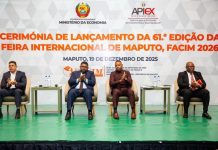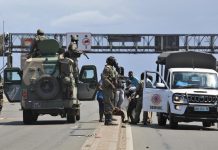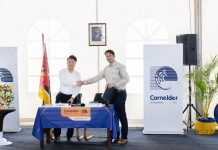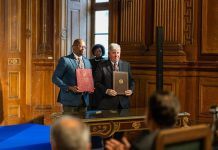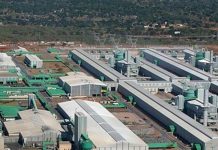Africa-Press – Mozambique. Voters in Cabo Delgado who cast their ballots On Wednesday in the Mozambican general elections called on the country’s next president to put an end to the terrorism that has affected that region of northern Mozambique for more than seven years.
Elias Tobias, 28, was at Pemba Secondary School at 06:00 local time (05:00 in Lisbon), an hour before the polls opened, to be one of the first to exercise his civic right, and told the Lusa news agency that he expected the future Mozambican president to put an end to the actions of the rebels who are claiming human lives.
“The future president, for me, would like to do good things and put an end to terrorism, it’s been seven years, it’s a lot, we’ve lost many lives that today would also be here casting their votes. I’d like this matter to end so we can look at other things,” he said, standing in a queue of hundreds of voters waiting to be called.
Also present was Samuel Dausse, 57, who left Maputo for Cabo Delgado about 10 years ago in search of a job opportunity, but terrorism left him jobless.
“Put an end to terrorism in Cabo Delgado province,” he also asked the next President, considering that this is necessary for improving employability.
The director of the Technical Secretariat for Electoral Administration (STAE) in Cabo Delgado province, Cassamo Camal, said that all 772 polling stations were open by 07:00 (06:00 in Lisbon), including in the areas affected by rebel actions.
“In the terrorist areas, we have polling stations up and running. We’re talking about the districts of Quissanga, Macomia and Meluco,” said the official.
Despite the insecurity, the authorities say that voting in the districts plagued by terrorism will occur until 18:00 (17:00 in Lisbon), the time set by Mozambique’s National Electoral Commission.
Cabo Delgado province has 1,407,467 voters, 2,191 polling stations and 15,337 polling station staff, spread across 17 districts.
The CNE has registered 17,163,686 voters, including 333,839 who will be voting in seven African and two European countries.
Today’s general elections include the seventh presidential elections – for which the current head of state, Filipe Nyusi, who has reached the constitutional limit of two terms, is no longer running – at the same time as the seventh legislative elections and the fourth elections for provincial assemblies and governors.
Running for president are Lutero Simango, backed by the Mozambique Democratic Movement (MDM, the third largest parliamentary force), Daniel Chapo, with the support of the Mozambique Liberation Front (Frelimo, in power since 1975), Venâncio Mondlane, backed by the extra-parliamentary Podemos party, and Ossufo Momade, with the support of the Mozambican National Resistance (Renamo, the largest opposition party).
If there is no second round, the CNE must publish the presidential election results up to 15 days before the Constitutional Council validates them. The Council has no deadlines for proclaiming the official results after analysing any appeals.
The vote includes legislative seats (250 deputies) and seats for provincial assemblies and their respective provincial governors, in this case, with 794 mandates to be distributed. The CNE approved lists of 35 political parties running for parliament and 14 political parties and groups of voting citizens for the provincial assemblies.
More than 184,500 polling station staff are involved in the elections, spread across the country’s 154 districts (180,075) and outside the country (4,436).
For More News And Analysis About Mozambique Follow Africa-Press


